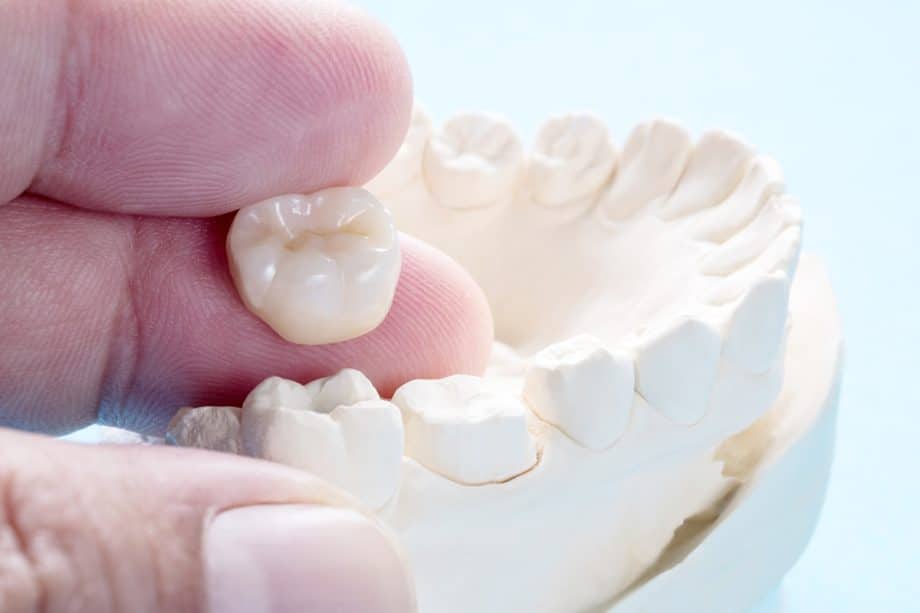A dental crown is a restoration option for a tooth that is too decayed or damaged for a filling to be effective. A crown fits over the existing tooth, leaving the natural root in place. If a tooth is cracked or has one or more large cavities, a crown may be the best treatment option.
A crown can potentially save a tooth that is severely damaged, but how bad can a tooth be and still get a crown? Here’s what you need to know.
What is a Dental Crown?
A dental crown is a tooth-shaped protective cover placed over an existing tooth. The enamel must be reduced somewhat to make room for the crown to fit over the top. Crowns can be made of porcelain in the shape and color of your natural teeth. Metal crowns are also an option for teeth that are in the back of your mouth and less visible, or for those who want the gold-tooth look.
Benefits of Dental Crowns
Dental crowns offer the following benefits:
- Save your natural tooth. In many cases a dental crown can save the remaining tooth material, allowing the natural root system to remain in place to support the crown. A tooth with a crown restoration could last for the rest of your life.
- Save money. A crown is a less expensive procedure than replacing a tooth. A single crown placed over a tooth is a restorative option typically covered by dental insurance. Replacement teeth, such as a bridge or a dental implant, will cost more and may not be covered by insurance.
- Save time. Getting a crown is a relatively quick procedure. It is faster than having a tooth extracted and replaced.
- Prevent bone loss. By restoring a tooth with a crown and preserving the natural root, you are preventing bone loss in the jaw that can occur when a tooth is extracted and replaced with a bridge or not replaced at all.
- Keep your teeth in alignment. Having a tooth extracted without replacing it leaves a gap in your mouth that can cause your other teeth to shift out of place. A crown restoration can keep your teeth in their current position.
- Prevent tooth infection. A tooth with a crack or severe decay is at risk for infection. An infected tooth will need a root canal and then a crown.
Can My Tooth Be Saved With a Crown?
Not all teeth can be saved. Sometimes the damage is too extensive and the tooth will need to be extracted and replaced. But many times a crown can save the tooth. How will you know if a crown will save your tooth? You’ll need an evaluation by a dentist to determine the condition of the tooth and whether or not a crown can save it. It will depend on the extent of the damage to the tooth and how much enamel is left, as well as the health of the root and the dental pulp contained in the root canal.
Alternatives to Dental Crowns
If your tooth has sustained too much damage for a dental crown, it will need to be extracted and replaced with an artificial tooth of some kind. Options include:
- Dental bridge. A bridge is a dental prosthetic consisting of two crowns that fit over the healthy teeth on either side of the missing tooth with an artificial tooth suspended between them. It can replace a single tooth or a few teeth in a row.
- Dental implant. A dental implant is an artificial tooth root that is surgically placed in the jaw bone. A crown can be attached to the implant to replace a missing tooth.
Where Can I Get a Crown Evaluation?
You’ll need to see a dentist for an evaluation to determine whether or not your tooth can be saved with a crown. Suwanee Family Dentistry can examine your tooth and make a recommendation for treatment. We will do our best to save your tooth with a crown, if possible. If not, we provide alternative options for severely damaged teeth to restore the natural look and function of your smile.
Call 678-714-2380 or contact us today to learn more and schedule an appointment.
